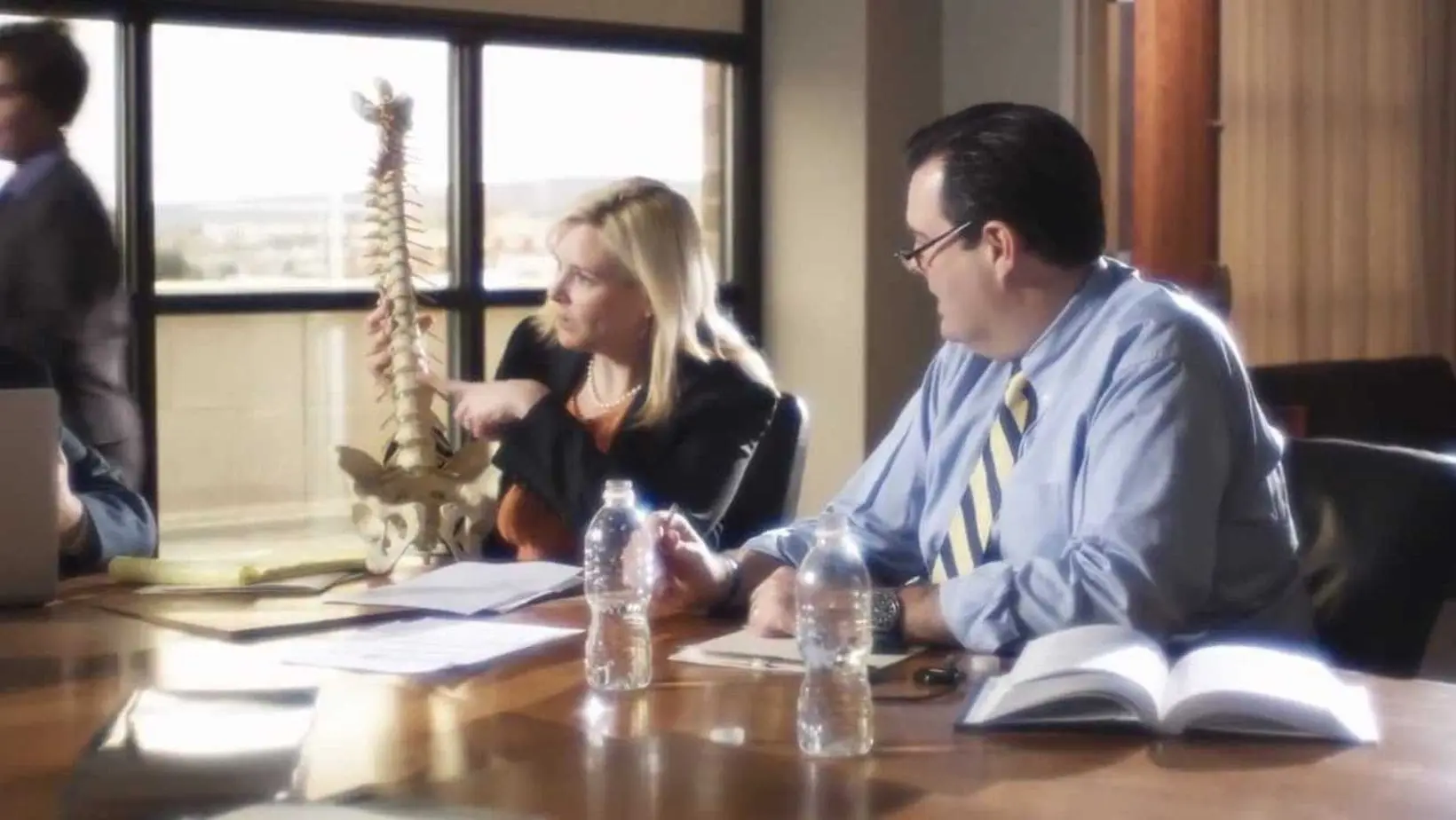What Are Punitive Damages?
When you are in an accident caused by someone else’s negligence, you have the right to demand compensatory damages to recover your losses. Injuries cause you pain and disrupt your life. They also incur serious financial hardship. The at-fault party needs to compensate you for your losses, covering the financial damage they have caused and paying you back for your suffering.
Cases involving extreme negligence may warrant punitive damages along with compensatory damages. The personal injury lawyers from Munley Law can answer your questions, such as what are punitive damages? How are they different from compensatory damages, and what types of claims allow for punitive damages? If you are entitled to punitive damages, we will fight hard to secure them.

Differences Between Compensatory vs. Punitive Damages
There are two main categories of damages in a personal injury case: compensatory and punitive. The compensatory category breaks down further into economic and non-economic damages. These terms can vary from state to state. For example, some states refer to economic damages as “special” damages and non-economic damages as “general” damages.
Compensatory Damages
Economic damages compensate you for the financial costs associated with your accident. They cover your:
Medical expenses
Income lost during recovery time
Costs for repairing or replacing damaged property
Any other related expenses
You may require ongoing medical care. If permanently disabled, you may not be able to go back to work. Your lawyer will include those continuing financial needs in the amount demanded for economic damages.
Non-economic damages provide financial acknowledgement of losses that do not come with a bill. Your physical pain matters. Accidents and injuries cause emotional trauma, too. You may become depressed or anxious.
You might be too disabled to engage socially or enjoy recreational activities you once did. Relationships can change as family members take on caregiving roles, and you become more isolated from friends. These losses affect your overall quality of life. Your attorney can explain exactly how emotional distress damages work and value yours accurately.
Punitive Damages
In some states, punitive damages are called “exemplary” damages. Punitive damages do not compensate you for your losses. Instead, they punish at-fault parties for the harm they have caused through malice, extreme carelessness, or reckless behavior. The punishment is monetary.
At-fault parties required to pay punitive damages pay the ordered amount in addition to compensatory damages. By imposing punitive damages, judges and juries send a message to the at-fault party, and any others who are paying attention, that such behavior is not acceptable and comes at a high cost.
Victims can only receive punitive damages if awarded compensatory damages. Judges and juries can order punitive damages only if victims prove the at-fault party showed excessive negligence or malicious intent.
If Your Case Warrants Punitive Damages, We Will Fight for Them
Getting punitive damages can be challenging. If your situation presents grounds for them, we will fight fiercely to secure them. Our goal is to get you justice, and justice may require more than compensatory damages. Our team is prepared to take on any opponent, no matter how formidable they seem.
Victims with valid car accident claims can often collect compensation. Those hurt in hit-and-run accidents or by impaired drivers may also see punitive damages. A Pennsylvania family fought for and won punitive damages when a driver hit and killed a 14-year-old pedestrian and left the scene. The driver had a suspended license and was intoxicated when he hit the victim.
When defective products harm product users, victims may demand punitive damages from the negligent company. Consumers have rights. Manufacturers and designers must make sure the products they create and sell are not dangerous. For example, the Ford Motor Company paid punitive damages to victims hurt by the company’s failure to inform owners of a particular vehicle model’s defective tires.
Factors Considered When Determining Punitive Damages
The court evaluates a variety of factors when determining whether ordering punitive damages is appropriate and how much the punishment should be. These factors include:
Severity of the negligent party’s behavior: the worse the behavior, the higher the chances of a punitive award.
At-fault party’s history of similar behavior: if the defendant has a pattern of the same or similar reckless behavior, the court may see fit to impose a punishment.
Negligent party’s financial situation: the amount ordered must be enough to punish the at-fault party and deter a repeat offense without being excessive.
Amount awarded in compensatory damages: the amount ordered for punitive damages is typically a multiple of the compensatory award.
Munley Law knows how to build a case for punitive damages and will work to hold at-fault parties accountable for their extreme negligence.
Meeting the Burden of Proof for Securing Punitive Damages
By connecting with our team quickly after your accident, you give us the best chance of carrying out a productive post-accident investigation. Evidence is more available in the time close after the incident. Witnesses’ memories are more reliable. Physical evidence is less likely to get lost. Traffic and surveillance camera footage can be erased as time goes by.
Convincing the court to award punitive damages is the victim’s burden, as explained by the United States Courts for the Ninth Circuit. Accomplishing that task requires extensive evidence. We know the importance of gathering evidence in a personal injury lawsuit. Count on us to gather every bit of information available, calling on accident reconstructionists or other experts to help with the process.
Punitive Damage Awards Are Not Common, But Are on the Rise
Punitive damage awards are not automatic or even the norm for personal injury claims. How often victims see these awards varies from state to state.
A recent Chubb Bermuda study of punitive damages in the United States found punitive damage awards are more common “than previously thought.” More specific findings show:
Punitive damages were awarded in 35.5% of studied cases where victims won at trial and pursued punitive damages.
When victims secured between $1 and $10 million in compensatory damages and had pursued punitive damages, the court ordered these damages in 53% of the cases.
When victims secured more than $10 million in compensatory damages and had pursued punitive damages, the court ordered these damages in 82% of the cases.
The study broke down results by state. For example,
In Ohio, victims pursued punitive damages in 2.9% of cases. They won and received them in 47.1% of those cases.
In New Jersey, victims pursued punitive damages in 5.2% of cases. They won and received them in 20% of those cases.
In Pennsylvania, victims pursued punitive damages in 3.6% of cases. They won and received them in 31.6% of those cases.
The personal injury lawyers at Munley Law know how juries respond to evidence and arguments. We know what helps convince them of your suffering and of the at-fault party’s extreme negligence. You can expect us to develop insightful, effective strategies to get you the damages you deserve.
You Need a Skilled, Experienced Attorney to Secure Punitive Damages
The amount of punitive damages a judge or jury can award also varies by state. Some states put limits, or “caps,” on amounts in all or some types of cases. For example, Pennsylvania only caps punitive damages for medical malpractice cases. A few states prohibit punitive damages altogether.
In the case involving State Farm vs. Campbell, the United States Supreme Court determined that punitive damages should not be excessive. They ruled a 9:1 ratio of punitive to compensatory damages as acceptable.
In a case 20 years later, Bert Co. vs Turk, the jury assigned punitive damages per defendant, keeping the ratio within the U.S. Supreme Court’s ratio when considering one defendant at a time. The total punitive damage judgment represented an 11.2:1 ratio. Still, the Pennsylvania Supreme Court supported the jury’s decision on appeal.
You need an experienced team with sharp and expansive legal knowledge to secure punitive damages. Do not settle for inferior representation. Choose carefully. Choose Munley Law. Our 65 years in business have prepared us for any challenge an opponent or the court presents.

We Are Ready to Listen and Ready to Fight
The team at Munley Law has rich collective experience, extensive legal knowledge, and relationships with experts who can support your fight for justice. Put our resources to work for you. You will pay no out-of-pocket expenses, so there is no financial risk in partnering with us. Reach out today for a free case review. We are ready to listen, ready to plan, and ready to fight.
Posted in Personal Injury.









